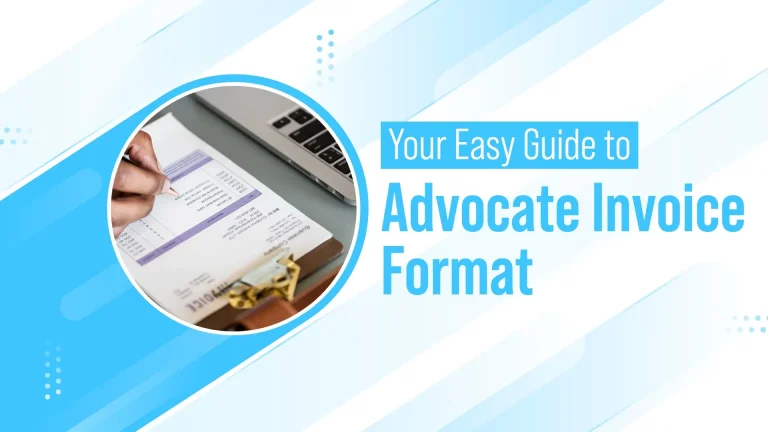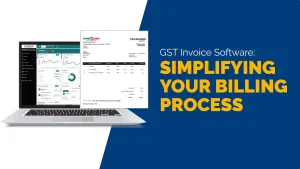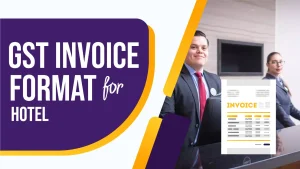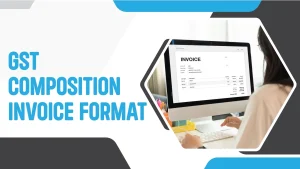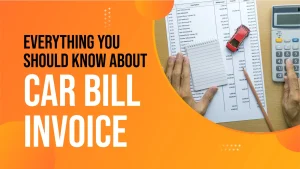Invoicing is a crucial aspect of any profession, including the legal field. For advocates, having an efficient and well-structured invoice format is essential for clear communication, smooth transactions, and accurate financial records. In this guide, we will explore the advocate invoice format in detail, providing all the information you need to create professional and effective invoices for your legal services. This will help you understand the importance of an organized invoice format, the key components that should be included, and tips for creating a professional advocate invoice.
Importance of an Advocate Invoice Format
Having a standardized advocate invoice format ensures that all necessary information is included, making it easier for clients to understand the charges and for advocates to manage their finances. It also helps in maintaining transparency, reducing disputes, and ensuring timely payments. A well-designed invoice can enhance your professional image and facilitate better client relationships. It is important to have a clear and consistent invoice format so that both you and your clients can easily understand and reference the details of the services provided and the charges associated with them.
Key Components of an Advocate Invoice Format
- Header
- Business Name and Logo: The top of the invoice should feature your business name and logo. This branding element makes your invoice look professional and helps in easy identification. It also gives a sense of trust and credibility to your clients.
- Contact Information: Include your address, phone number, email, and website. This allows clients to contact you easily if they have any questions or need further information regarding the invoice.
- Client Information
- Client’s Name: Clearly state the name of the client to whom the invoice is addressed.
- Client’s Address: Include the client’s full address to ensure accurate records and delivery. This helps in maintaining detailed records of your clients for future reference.
- Contact Details: Add the client’s phone number and email for easy communication. This can be useful if there are any queries or clarifications needed regarding the invoice.
- Invoice Details
- Invoice Number: Each invoice should have a unique number for tracking and reference. This helps in keeping your invoices organized and makes it easier to find specific invoices when needed.
- Date of Issue: The date when the invoice is issued should be clearly mentioned. This helps in tracking the timeline of your services and payments.
- Due Date: Clearly mention the payment due date to avoid any confusion and ensure timely payment. This sets clear expectations for when the payment is expected to be made.
- Description of Services
- Service Details: Provide a detailed description of the legal services provided. This should include the type of service, date of service, and any other relevant details. Being specific about the services rendered helps in avoiding any misunderstandings.
- Hours Worked: If you charge by the hour, mention the number of hours worked. This gives the client a clear understanding of how the total cost was calculated.
- Rate per Hour: State your hourly rate to avoid any misunderstandings. This should be agreed upon beforehand and clearly mentioned in the invoice.
- Cost Breakdown
- Subtotal: Calculate the subtotal for all services provided. This is the total amount before adding any taxes or discounts.
- Taxes: If applicable, include any taxes that need to be added to the subtotal. This ensures compliance with tax regulations.
- Discounts: If you are offering any discounts, mention them clearly. This helps in building goodwill with your clients and provides clarity on the final amount due.
- Total Amount Due: Finally, state the total amount due. This is the amount the client needs to pay, including any taxes and discounts.
- Payment Terms
- Payment Methods: List the accepted payment methods such as bank transfer, credit card, or online payment platforms. Providing multiple payment options makes it easier for clients to pay you.
- Late Payment Fees: Mention any late payment fees or penalties if the payment is not made by the due date. This encourages timely payments and helps in maintaining your cash flow.
- Additional Notes
- Terms and Conditions: Include any specific terms and conditions related to your services and payments. This sets clear expectations and helps in avoiding any disputes.
- Thank You Note: Adding a thank you note can enhance your relationship with the client and show appreciation for their business. It adds a personal touch and reinforces positive client relationships.
Advocate Invoice Format Example

Advocate Invoice
| Invoice Number: | INV-001 |
|---|---|
| Date of Issue: | July 19, 2024 |
| Due Date: | August 19, 2024 |
| Client Name: | John Doe |
|---|---|
| Client Address: | 123 Main Street, City, State, 12345 |
| Client Contact: | Email: john.doe@example.com Phone: (123) 456-7890 |
| Description of Services | Hours Worked | Rate per Hour | Amount |
|---|---|---|---|
| Legal Consultation | 10 | $100 | $1000 |
| Document Review | 5 | $100 | $500 |
| Representation in Court | 8 | $150 | $1200 |
| Subtotal: | $2700 |
|---|---|
| Taxes (10%): | $270 |
| Total Amount Due: | $2970 |
Creating a Professional Advocate Invoice
Using a template can save time and ensure consistency. Many accounting software programs offer customizable invoice templates. You can also create your own using word processing or spreadsheet software. Here are some tips for creating a professional advocate invoice:
- Use a Clean and Simple Design: Avoid clutter and use a clean, simple design that is easy to read. Use professional fonts and consistent formatting to ensure that your invoice looks polished and professional.
- Include Your Branding: Adding your logo and using your business colors can make your invoice look more professional and reinforce your brand. This helps in creating a strong brand identity.
- Be Clear and Detailed: Ensure that all the information is clear and detailed. Avoid ambiguity in the description of services and charges. Providing clear details helps in preventing any misunderstandings or disputes.
- Check for Accuracy: Double-check all the details, including dates, amounts, and client information, to avoid any errors. Ensuring accuracy in your invoices helps in maintaining a professional image and building trust with your clients.
Benefits of Using a Standard Advocate Invoice Format
Using a standard advocate invoice format offers several benefits:
- Professionalism: A well-structured invoice presents a professional image to your clients, enhancing your reputation. It shows that you take your business seriously and pay attention to detail.
- Efficiency: Standardized invoices streamline the billing process, making it quicker and easier to generate invoices. This saves time and reduces the chances of errors.
- Accuracy: A consistent format ensures that all necessary information is included, reducing the risk of errors and disputes. Accurate invoicing helps in maintaining clear financial records.
- Compliance: Using a standard format helps ensure compliance with legal and financial regulations, protecting you from potential issues. It ensures that all required details are included as per the legal standards.
- Financial Management: Proper invoicing helps in accurate financial record-keeping, making it easier to track income and expenses. This is essential for managing your finances effectively and making informed business decisions.
Common Mistakes to Avoid in Advocate Invoices
- Incomplete Information: Ensure that all required details are included. Missing information can lead to confusion and delays in payment. Double-check to ensure that all the necessary details are present in the invoice.
- Errors in Amounts: Double-check all calculations to avoid mistakes in the amounts charged. Any errors in the amounts can lead to disputes and delay the payment process.
- Unclear Descriptions: Provide clear and detailed descriptions of the services provided. Ambiguity can lead to disputes. Be specific about the services rendered to avoid any misunderstandings.
- Ignoring Payment Terms: Clearly state the payment terms, including due dates and late fees, to avoid misunderstandings. This helps in setting clear expectations for the payment process.
- Lack of Follow-Up: Follow up on unpaid invoices to ensure timely payments. Regular follow-up can help in maintaining a steady cash flow and ensure that you get paid on time.
Tips for Effective Invoice Management
- Use Invoicing Software: Invoicing software can automate the billing process, reducing manual errors and saving time. It also helps in keeping your invoices organized and easily accessible.
- Set Clear Terms: Establish clear payment terms with your clients before starting any work. This helps in avoiding disputes later and ensures that both parties are on the same page regarding the payment terms.
- Maintain Records: Keep detailed records of all invoices issued and payments received. This is essential for financial management and tax purposes. Maintaining accurate records helps in tracking your income and expenses.
- Follow Up on Overdue Payments: Develop a process for following up on overdue payments to ensure you get paid on time. Regular follow-up can help in maintaining a steady cash flow and avoid any financial issues.
- Offer Multiple Payment Options: Providing multiple payment options can make it easier for clients to pay you. This increases the chances of timely payments and enhances client satisfaction.
Conclusion
In conclusion, having a well-structured advocate invoice format is essential for managing your legal practice effectively. It not only ensures that you get paid on time but also helps in maintaining clear and transparent communication with your clients. By including all necessary details, using a professional design, and following best practices for invoice management, you can streamline your billing process and enhance your professional image. Whether you choose to use invoicing software or create your own template, the key is to be consistent, accurate, and clear in your invoicing practices.
Also Read
- How to Ensure Data Security in Your Invoice Management SystemIn today’s digital age, businesses rely heavily on technology to streamline operations and improve efficiency. An invoice management system plays a crucial role in managing financial transactions and maintaining accurate records. However, with the increasing reliance on technology comes the… Read more: How to Ensure Data Security in Your Invoice Management System
- GST Invoice Software: Making Billing EasyIn today’s busy world of business, being efficient is super important. One big thing that needs to be super efficient is billing. With new technology, old-fashioned manual billing is out of date and can make a lot of mistakes. That’s… Read more: GST Invoice Software: Making Billing Easy
- GST Invoice Format for HotelIn the hospitality industry, especially for hotels, managing financial transactions is a very important task. One key part of this financial management is creating invoices that follow the rules of the Goods and Services Tax (GST) in India. Having a… Read more: GST Invoice Format for Hotel
- GST Composition Invoice FormatThe GST (Goods and Services Tax) Composition Scheme is a straightforward and user-friendly taxation scheme designed for small businesses in India. This scheme reduces the compliance burden for small taxpayers by allowing them to pay GST at a fixed rate… Read more: GST Composition Invoice Format
- Everything You Should Know About Car Bill InvoiceWhen it comes to car purchases, sales, repairs, or rentals, a car bill invoice is an essential document. This invoice serves as a record of the transaction and provides a detailed account of the services rendered or goods sold. Understanding… Read more: Everything You Should Know About Car Bill Invoice
Frequently Asked Questions
What information should be included in an advocate invoice?
An advocate invoice should include your business name, logo, and contact details. It must also have the client’s name and contact information. Include an invoice number, date of issue, and payment due date. Provide a detailed description of the legal services provided, including the hours worked and the rate per hour if applicable. Add any taxes, discounts, and the total amount due. Finally, mention the payment methods and any late payment fees. This ensures clarity and helps in maintaining accurate records.
Why is a standardized advocate invoice format important?
A standardized advocate invoice format is important because it ensures all necessary information is included, making it easier for clients to understand the charges. It helps in maintaining transparency and reducing disputes, leading to timely payments. A consistent format also streamlines the invoicing process, making it more efficient. It enhances your professional image and ensures compliance with legal and financial regulations. Overall, it aids in accurate financial record-keeping and better financial management.
How can I make my advocate invoice look professional?
To make your advocate invoice look professional, use a clean and simple design. Include your business name, logo, and contact details at the top. Ensure all information is clear and detailed. Use consistent formatting and professional fonts. Provide a detailed description of the services rendered and ensure accuracy in all calculations. Adding a thank you note at the end can enhance client relationships. Using invoicing software or templates can also help maintain a professional look.
What are the key components of an advocate invoice format?
The key components of an advocate invoice format include a header with your business name, logo, and contact information. Client information should be clearly stated, including their name and contact details. Include invoice details like the invoice number, date of issue, and payment due date. Provide a detailed description of the services provided, hours worked, and rate per hour. Include a cost breakdown, any applicable taxes, discounts, and the total amount due. Mention payment methods and any late payment fees.
How can I ensure timely payments from clients?
To ensure timely payments from clients, clearly state the payment due date and any late payment fees in the invoice. Use a consistent and professional invoice format that includes all necessary information. Send invoices promptly after the services are rendered. Follow up on overdue payments with polite reminders. Offering multiple payment options can also make it easier for clients to pay on time. Maintaining clear communication with your clients regarding payment terms and expectations is crucial for ensuring timely payments.
What should I do if a client disputes an invoice?
If a client disputes an invoice, review the invoice carefully to ensure there are no errors. Communicate with the client to understand their concerns and provide a clear explanation of the charges. Be professional and polite in your communication. If necessary, provide supporting documentation to justify the charges. If the dispute cannot be resolved through communication, consider seeking legal advice. Maintaining detailed records and a clear invoicing process can help in preventing disputes.
Can I use invoicing software for advocate invoices?
Yes, using invoicing software for advocate invoices can be highly beneficial. Invoicing software can automate the billing process, reducing manual errors and saving time. It can help in keeping your invoices organized and easily accessible. Most invoicing software offers customizable templates, making it easy to create professional and consistent invoices. It can also provide features like automatic reminders for overdue payments and integration with accounting software, making financial management more efficient.
How do I handle taxes in advocate invoices?
When handling taxes in advocate invoices, ensure you are aware of the applicable tax regulations in your jurisdiction. Clearly state any taxes that need to be added to the subtotal. Include the tax rate and the total tax amount. If you are offering any tax-exempt services, mention them clearly in the invoice. Using invoicing software can help in accurately calculating and including taxes in your invoices. It is important to maintain detailed records of all taxes charged for compliance and financial management purposes.
What should I include in the description of services?
In the description of services on an advocate invoice, provide detailed information about the legal services provided. Include the type of service, date of service, and any relevant details. If you charge by the hour, mention the number of hours worked and the rate per hour. Be specific and clear to avoid any misunderstandings. Providing a detailed description helps in justifying the charges and maintaining transparency with your clients. It also aids in keeping accurate records for future reference.
How can I follow up on overdue payments effectively?
To follow up on overdue payments effectively, send polite reminders to the client soon after the due date passes. Maintain a professional tone and provide a copy of the original invoice for reference. Use invoicing software that offers automatic reminders for overdue payments. If the payment is significantly overdue, consider making a phone call to discuss the issue directly. Establish a clear process for follow-ups and stick to it. Maintaining clear communication and setting clear expectations from the beginning can help in preventing overdue payments.

